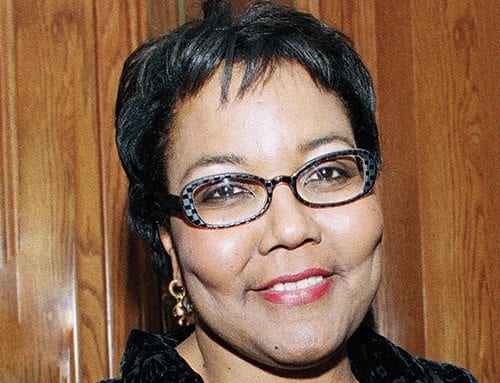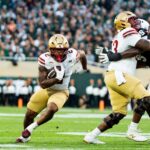
Who are your people?
It’s a question that dogged Juleanna Richardson ever since an elementary school teacher in Newark, Ohio asked her class to tell where their families had come from.
Richardson listened as her white classmates shared stories of their European origins, then offered a half-hearted answer that betrayed her own lack of knowledge of her family history.
But over the years, her curiosity blossomed into a passion for history. As a student at Brandeis, she researched the Harlem Renaissance, incorporating into her exploration trips to the Schomburg Center for Research in Black Culture, interviews with intellectuals, artists and an honors thesis on Langston Hughes.
Years later, in 1998, Richardson was at a crossroads. She had just graduated from Harvard law School and was headed to a career in the corporate sector.
But the interviews she conducted during her exploration of the Harlem Renaissance remained fresh in her mind.
“The stories were still with me,” she said.
That’s why in 1999 Richardson decided to pursue her dream, launching The History Makers, a project that has collected 7,000 interviews with African Americans — well-known and obscure — in business, politics, academia the arts.
The History Project has amassed the largest collection of African American oral histories since the Works Progress Administration assembled the stories of ex-slaves in the 1930s. Richardson’s project began in Chicago and spread to cities throughout the U.S., including Boston, where interviewees include state Rep. Byron Rushing, construction company owner John B. Cruz, Sr., news reporter Sarah-Ann Shaw, UMass Professor Robert Johnson, Jr. and attorney Fletcher “Flash” Wiley, who has helped Richardson expand the project into Boston, Washington, D.C. and other cities.
“What makes this so interesting is that it’s an oral history, which they take and develop into a written product,” Wiley says. “It’s like building a treasure trove, one interview at a time. It gives you a greater appreciation, a greater visceral enjoyment of our people, the activities that we’ve been involved in, the burdens we’ve overcome. We’re an incredibly resilient people.
“The more you learn about people, the more you admire what they went through and had to do to exist and to thrive in this new land.”
This Friday, Wiley and Dorothy Terrell will host a reception for The History Makers at the Four Seasons Hotel in Boston.
The History Makers dispatches trained crews to collect the stories. On average, the interviews last three hours. The interviewers gather audio, video and still images of their subjects, and then transcribe and digitize them. Last year, The History Makers donated its entire collection – now more than 5,000 interviews – to the Library of Congress, which will serve as the permanent repository for the work.
The growing collection has changed the way Richardson looks at history, giving her a greater view of the interconnectedness of the black experience in the United States. She cites an interview with Lloyd Richards, the former head of the Yale School of Drama. In his interview he recounted how Harry Belafonte financed the first production of Lorraine Hansberry’s Raisin in the Sun in 1959.
Hansberry, Richards, Ossie Davis, Ruby Dee and Sidney Portier were all members of the Negro Ensemble Theatre in 1950s. Their collaborations carried on, giving birth to future generations of black actors and playwrights.
“There are a lot of instances where you don’t realize how people are connected,” Richardson says. “A lot of people wanted me to narrow the scope of the project to a single part of the country or a particular subject matter. But in taking a broad scope you see the intersections.”
Another moment of historical intersection came with Jesse Jackson’s 1988 bid for the presidency, a moment that Richardson says was particularly fruitful for black journalists.
“A lot of people came into their own during that election,” she said. “It made their careers.”





